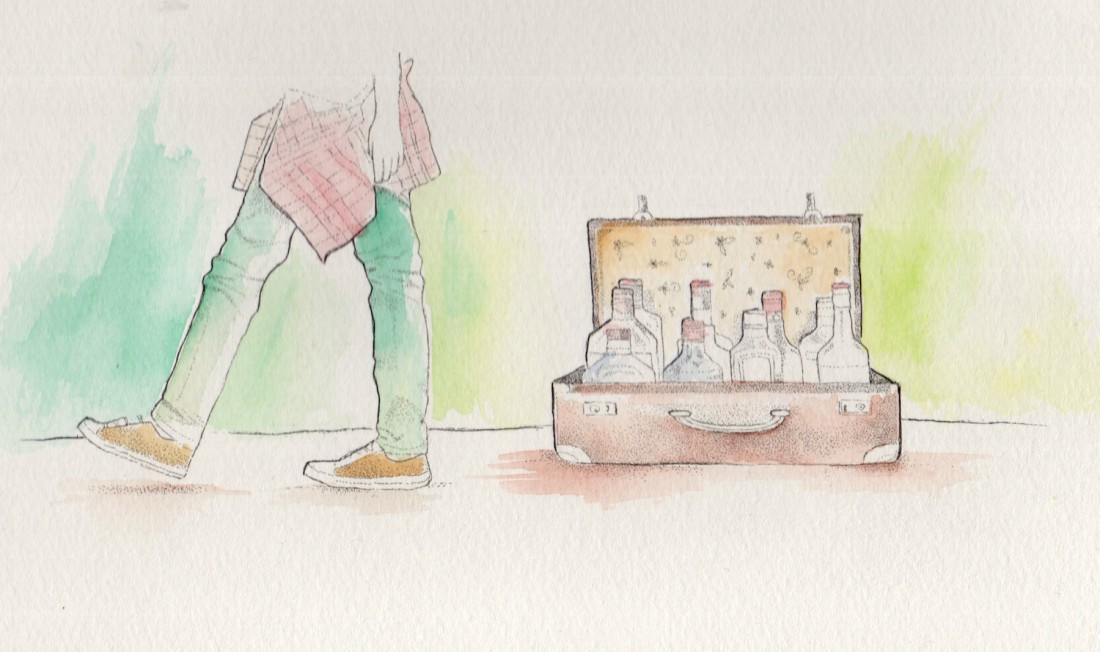Dry Wit
Take a break from drinking culture
January was a popular month for social drinkers – those who are casually wedded to alcohol but unburdened by addiction – to take a break.
A few of my friends chose the same for February, and then there’s the whole phenomenon of Sober October, because rhyming is cool. For my trial run, I chose March, but it’s not the month that matters.
Taking a break from drinking is alternately condoned and framed as being a Very Serious Challenge, which shows just how much drinking culture becomes ingrained into our lives.
“Taking a break” implies that there was an initial commitment or contract that is temporarily on hold. But how many social drinkers consciously committed to drinking for the remainder of their lives?
When I had that first gross peach cooler, I didn’t think “there, now I’m a drinker.” It wasn’t even a spit sisters-level bond. Although my relationship with alcohol progressed, at no moment was it formally cemented.
It’s a commitment that creeps up on you until all of a sudden, socializing becomes inextricably tied to drinking – it’s like a live-in platonic relationship that carries all the trappings of marriage, but is never fully recognized as such.
There’s no solemn moment when, while cracking open a six-pack, a social drinker takes the vows to always have alcohol on hand for guests, to be forever diligent in their study of various boozy beverages, to henceforth include liquor stores as prime points of interest as they assess the geography of a new place.
It’s assumed that you’re signing up for life, but no one says that overtly.
For many who quit drinking, there are moments when we face down the reality of being sober for the rest of our lives. If forever seems impossible, there’s the approach of taking it one day at a time. Days turn into weeks, into months, into years – that’s how commitment builds, whether it’s a conscious or unconscious accumulation.
When I was considering sobriety, I reasoned that I already had 15 years of experience living sober, so I wasn’t starting from nothing.
I had a 15 year career of drinking after that, and aside from breathing (or the other basic mechanics of survival), I can’t think of anything I’ve kept up that consistently for 15 years. “Not a bad run,” I thought, “and probably a good time to retire.”
As the days of drinking add up, we mistake it for something that’s an essential core of our existence, and necessary for our (social) well-being. So anytime someone I know takes a month off (for whatever reason), I quietly cheer to myself.
I’m not looking to recruit people to the sober life – I intend to stay sober for a good long while (another 15 years at least, for balance), and I can’t say that this decision is right for anyone but me.
But I do hope that more people can discover that you don’t have to drink to live a good life so that many others – moderates, social drinkers and alcoholics – will have more tangible, living proof that sobriety is not the end of the world.
Taking a break can mean taking a step back to see all of the assumptions about the elevated status of liquor, and our commitments to it, in a new light. And that’s never a bad thing.
Anastasia Chipelski is the Managing Editor at The Uniter. She used to think sobriety was the end of the world, and is now pretty content with her post-apocalyptic life.
Published in Volume 70, Number 21 of The Uniter (February 25, 2016)







